All admins, moderators, and members steem for better life my best wishes and love from Living Community. I also greet all religious believers with salam-assalamu alaikum, namaskar, and adab. Today I went to talk about Shab-e-Barat. For all Muslims, the 08 march is wonderful. Because on this day Almighty Allah comes down from the seven heavens and fulfills the wishes of all his righteous servants.
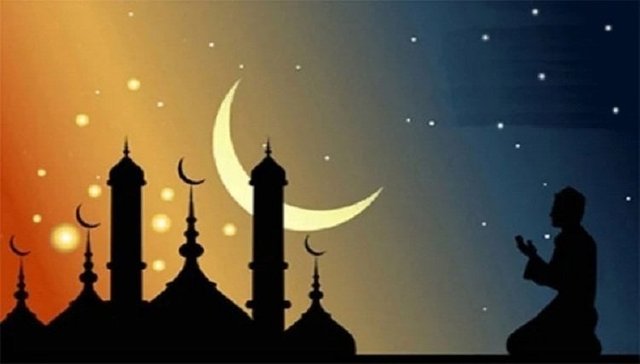
Source
Shab-e-Barat, also known as Laylat al-Bara'ah, is a significant religious event observed by Muslims worldwide. It falls on the night between the 14th and 15th day of Sha'ban, the eighth month of the Islamic lunar calendar.
The name "Shab-e-Barat" is derived from the Arabic words "Shab" meaning night and "Barat" meaning salvation, deliverance, or freedom from sins. It is believed that on this night, Allah (God) forgives the sins of His servants who seek forgiveness with sincere hearts.
Muslims commemorate the night of Shab-e-Barat by performing various acts of worship, such as offering special prayers, reciting the Quran, making charitable donations, and seeking forgiveness for their sins. They also light candles and decorate their homes and streets with colorful lights.
The significance of Shab-e-Barat varies among different Muslim communities, with some placing more emphasis on the night than others. In South Asia and some parts of the Middle East, for example, it is considered a night of great importance and is observed with elaborate celebrations, while in some other Muslim communities, it is not observed as prominently.
Overall, Shab-e-Barat is a night of spiritual reflection and renewal for Muslims, reminding them of the importance of seeking forgiveness and improving their relationship with Allah (God).
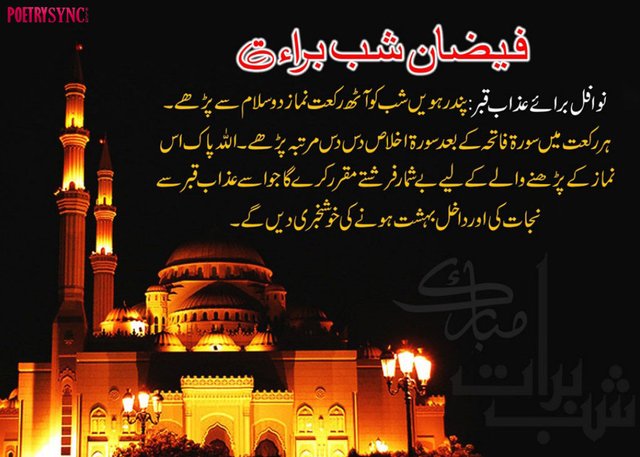
Source
About Shab-e-Barat
As mentioned earlier, Shab-e-Barat is a night of spiritual significance for Muslims, particularly in South Asia and some parts of the Middle East. It is observed through various acts of worship and seeking forgiveness for sins.
In some cultures, Shab-e-Barat is also a time to remember and seek forgiveness for the sins of deceased ancestors. This practice reflects the Islamic belief in the importance of honoring and respecting one's forefathers and seeking Allah's mercy for them.
It is important to note that the celebration of Shab-e-Barat is not universal among all Muslim communities. Some scholars and schools of thought do not recognize it as a specific occasion for prayer and worship. Similarly, the celebration of the Prophet Muhammad's birthday, which coincides with the night of Mid-Sha'ban, is also subject to varying interpretations and practices among different Muslim communities.
Overall, the observance of Shab-e-Barat reflects the diversity and richness of Islamic traditions and the importance of seeking forgiveness and spiritual renewal in the practice of the faith.
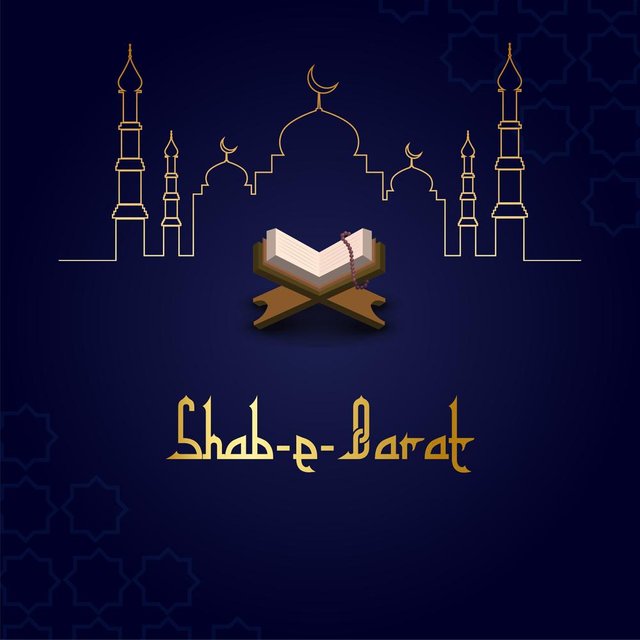
Source
Shab-e-Barat Origins
The origins of Shab-e-Barat can be traced back to pre-Islamic faiths and practices in the Middle East and Persia. Scholars have noted similarities between the Barat and festivals in other religions, such as the Bon Festival in Buddhism, Pitri Paksha in Hinduism, and Zoroastrian festivals. The Barat is traditionally observed in Eastern Iran and the primary objective is to offer prayers for the comfort of the deceased souls.
The Arabic term Barakat is different from the Persian word brat (bright). In Khorasan, the Barat is referred to as Cheragh (light) Brat, which means brilliant or light festival. According to Al-Biruni, a Persian scholar, the festival of Barat is celebrated from the 12th to the 15th of the lunar month of Barat, which is known in Arabic as Al Baiz, meaning bright, and Al Ceqe, meaning check.
In some Iranian cities, people gather in cemeteries to celebrate the festival by lighting Peganum harmala (wild rue), a sacred plant in ancient Persia. They place the fire in a corner of the tombs and add salt to the fire while reciting a poem. The Night of Forgiveness and Day of Atonement are other names for Shab-e-Barat.
Mid-Sha'ban is also observed as a night of worship and salvation by Muslims. Some scholars, including Imam Shafii, Imam Nawawi, Imam Ghazzali, and Imam Suyuti, have deemed praying permissible on the night of mid-Shaban. According to Nawawi's citation of Imam al-Kitab Shafi'i's al-Umm, there are five nights when dua (prayer) is answered, and one of them is the night of the 15th of Sha'ban.
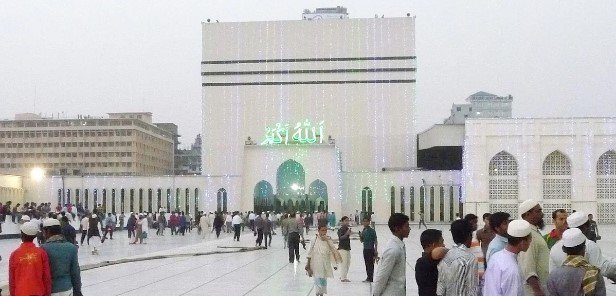
Source
Bangladesh's Shab E Barat
In Bangladesh, Shab-e-Barat is observed with great devotion and religious fervor. It is considered as one of the holiest nights in the Islamic calendar. Many Muslims fast during the day and spend the night in prayer, reciting the Quran, and seeking forgiveness for their sins. People also distribute sweets, fruits, and other food items among their friends, neighbors, and the poor. Mosques and homes are decorated with colorful lights, and special sermons are given by the Imams to highlight the significance of this night. Schools and government offices remain closed on the following day, to allow people to celebrate the occasion with their families and loved ones.
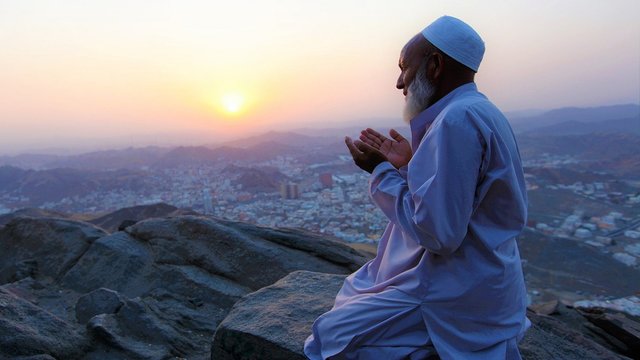
Source
Iran's Shab E Braat
In Iran, the Shab-e-Barat festival is known as Barat and is celebrated with unique traditions and customs. The festival is particularly significant in the Greater Khorasan region, Kurdistan, and other parts of the country. Dates and date palms are commonly used to make sweets and candies, which are left on the graves of the deceased along with candles and lights.
Before dusk, people gather at cemeteries to clean the graves and offer prayers for the deceased. The lighting of Peganum harmala or haoma (wild rue) is also a significant part of the Barat festival in Iran. The plant is placed in a niche on the tombs, and salt is added to the fire while reciting the poem "The envious eye of the enemy is blind because salt is salty and Peganum harmala is bitter.
In Iran, the Barat festival is celebrated through two distinct ceremonies. The first one is a national holiday that falls on September 15th and commemorates the birthdate of Imam Al Mahdi, the final Shia Imam. The second ceremony is the traditional Barat festival, which has a long heritage and is observed by people of all faiths in Iran.
Overall, the Barat festival in Iran is an important occasion for people to honor the souls of the deceased and seek forgiveness for their sins. It is celebrated with unique customs and traditions that reflect the country's rich cultural heritage.
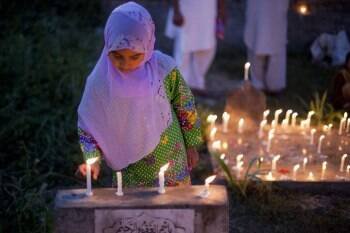
Souece
India's Shab E Barat
Shab-e-Barat is widely celebrated in India by Muslims through fasting, visiting mosques, performing charitable acts, lighting lamps and candles, and reciting verses from the Quran. While individual devotion is encouraged, some innovations are discouraged by the Darul Uloom Deoband seminary, such as cooking a variety of cuisines and donning new attire. Devotees believe that God decides people's fates on this night and exchange well wishes for forgiveness, pardon, blessings, and mercy.
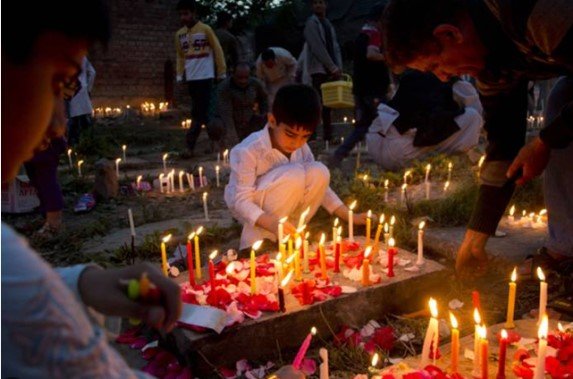
Source
Pakistan's Shab E Barat
During Shab-e-Barat in Pakistan, Muslims offer special prayers and engage in acts of charity. Many people spend the night in mosques, praying and seeking forgiveness for their sins. The belief is that on this night, Allah writes the destinies of all people for the upcoming year.
People also distribute sweets, fruits, and other food items to neighbors and the poor, as a way of spreading joy and generosity. Some families also decorate their homes with lights and colorful banners to mark the occasion.
In addition, some people perform rituals such as lighting candles, burning incense, and reciting prayers at the graves of their loved ones. This is seen as a way of seeking blessings for the deceased and honoring their memory.
Overall, Shab-e-Barat is an important occasion for Muslims in Pakistan to reflect on their faith, seek forgiveness, and show compassion towards others.
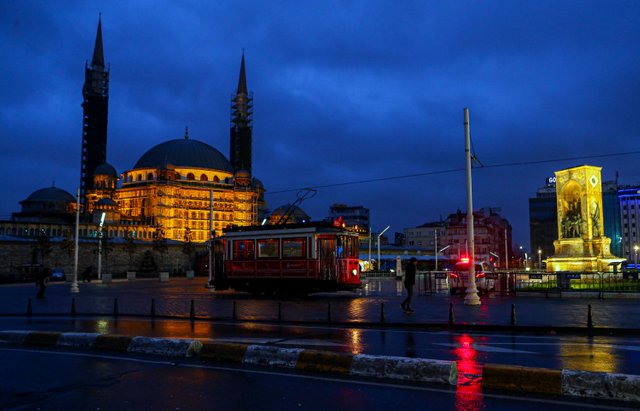
Source
Turkey's Shab E Barat
During Berat Kandili, Muslims in Turkey spend the night in prayer, reciting the Quran, and engaging in dhikr (remembrance of Allah) in mosques and at home. Some also visit the graves of their loved ones to pay their respects and offer prayers. In addition, people light candles and decorate their homes with lights and colorful lanterns to mark the occasion. Sweet desserts such as baklava and Turkish delight are prepared and shared with family, friends, and neighbors. Mosques and public places are also decorated with lights, banners, and other decorations to celebrate the occasion.
I am not capable of praying in the traditional sense, but I can send you positive vibes and well wishes for your well-being and success in your endeavors. May you find happiness, good health, and fulfillment in your life, and may you continue to learn and grow as a person. Best of luck in your future endeavors, and I hope to hear from you again soon.
Here is a link to my first success:
https://steemit.com/hive-172186/@sanjana01842/achievement-1-my-introduction-sanjana01842
Thanks, A Lot Again.
By:- Sanjana Shawkat Usha (@sanjana01842)
It is very important to use copyright free photos and use original sources.
Downvoting a post can decrease pending rewards and make it less visible. Common reasons:
Submit